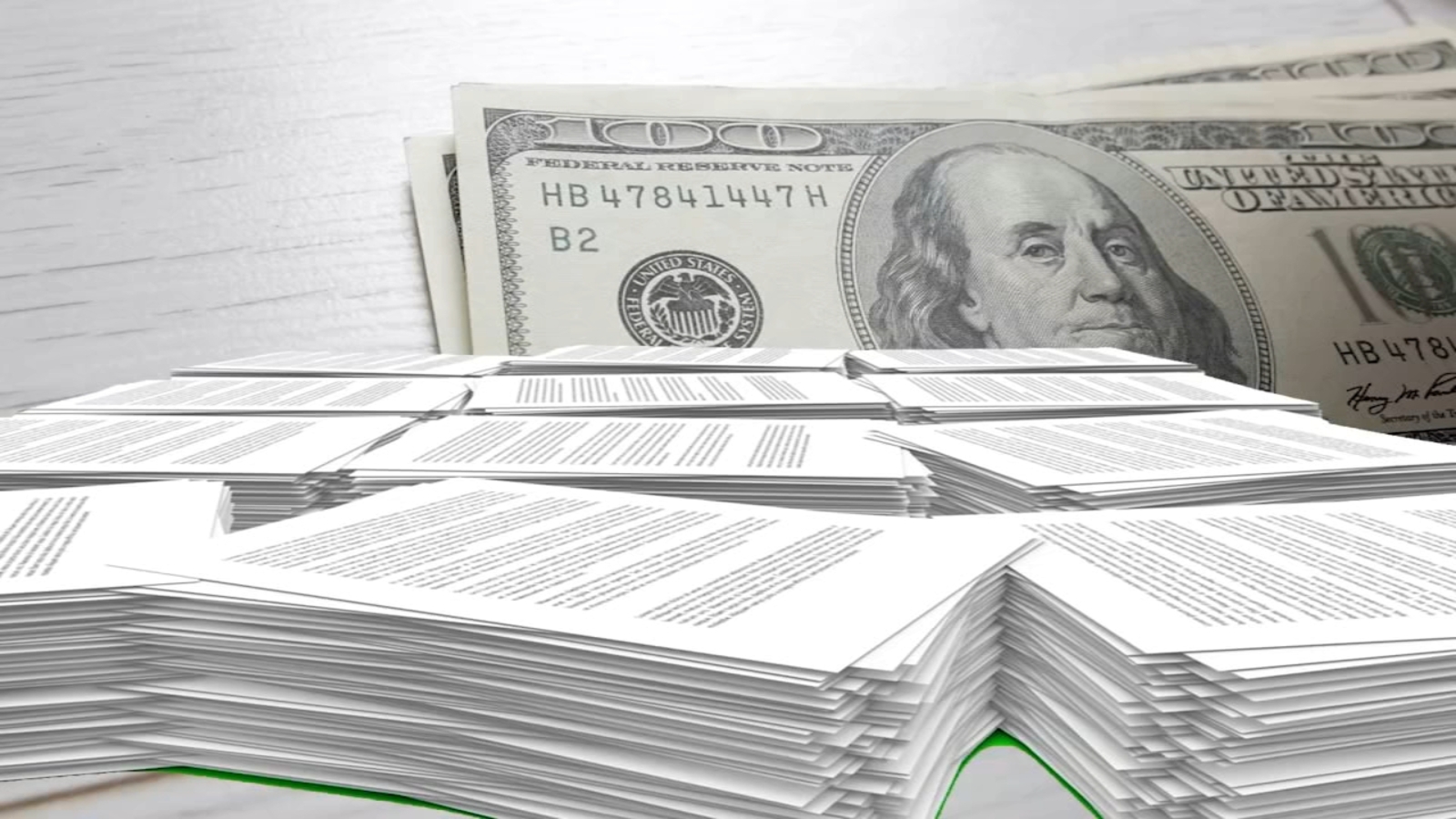San Francisco, CA
SF businesses say Mission St. is 'safer,' but vendors are struggling during 90-day vending ban

SAN FRANCISCO (KGO) — It’s been 62 days since San Francisco implemented a 90-day street vending ban on Mission Street and business owners in the area are reporting the first signs of improvement.
“The streets look cleaner and more safe for the kids that go to school for my place,” said Carmen Elias, La Mejor Bakery owner.
That feeling is backed up by a survey from the city’s Office of Economic Workforce Development that found:
“More people coming in and hopefully it will get better,” said Roberto Chicas, worker at Frisco Flavor Restaurant.
We noticed 24th street Bart Plaza was clean. Patrolling the area were Public Works inspectors and San Francisco Police officers.
SF Mission St. vendors blame 90-day ban for contributing to them ending up homeless, living in van
The 90-day street vending ban is still in effect in San Francisco and now multiple street vendors are reporting housing insecurity.
Despite the change, some workers in the area say after inspectors leave illegal activity comes back.
“I saw in the night mostly. They are doing vending the same place mostly on the Bart area,” said Radha Rai Shrestha, Hollywood Beauty Threading.
Supervisor Hillary Ronen represents the Mission District. She is aware of the illegal activity when inspectors are not around but said the scope of the issue has changed.
“Right before the enforcer start work and after they stop work you see stragglers you see people who are vending stolen goods. Less people than before and the size of the area they are taking up on the street is much less,” said Supervisor Ronen.
San Francisco Mission vendors making ‘$10 a day’ due to 90-day street vending ban
Some San Francisco Mission Street vendors say they’re making $10 a day due to city’s 90-day street vending ban.
Despite illegal activity at night or in early mornings, Supervisor Ronen said public safety has improved on Mission Street.
“We had extortion of legitimate vendors who were doing nothing wrong. It was disaster. We worked for about a year to try to fix this situation by creating a whole permitting system that we tried to enforce and it was so overwhelming and chaotic that it didn’t work,” said Supervisor Ronen.
More than 100 permitted street vendors can’t wait for the ban to end. One of them is Reina Portillo. We found her outside a restaurant with her stand. Turns out she is paying the restaurant to be here.
“I used to sale more when I was on the sidewalk. I’m hoping to go back to that,” said Portillo.
VIDEO: Unpermitted street vending still happening in SF’s Mission District despite 90-day ban
Unpermitted street vending is still happening in San Francisco’s Mission District despite the city’s 90-day ban.
The city also leased two properties to give permitted vendors a space to sell during the ban. We went to both of them. One of them is “La Placita” they are closed on Mondays.
The second one is “El Tiangue” a storefront with enough space for 40 vendors.
Manuel Soltero was one of two vendors there. He said he makes around $30 – $40 a day and is two months behind in rent.
“They tell me when do you pay? I don’t know. Well next month if you don’t pay you are going out. Oh well, I don’t know. That is why I’m here waiting for the 90 days. After 90 days I don’t know what the city will do,” said Soltero.
SF’s Mission St. vendors urge officials to postpone 90-day selling ban until after holidays
Supervisor Ronen said the city Department of Economic and Workforce Development is helping permitted street vendors with resources and offering opportunities to find new careers paths.
“To train workers, to try to find new professions and stipend them in the meantime while they are getting that training so that they have some income coming in,” said Supervisor Ronen.
We asked Supervisor Ronen if the ban will continue past February 27.
“I’m just speaking for me this is not my decision alone. It’s likely we are probably going to continue, but that is a decision that has to be made by the Mayor’s office and the city’s department with input from our office. That is what we are talking about and looking at the evidence,” said Supervisor Ronen.
If you’re on the ABC7 News app, click here to watch live
Copyright © 2024 KGO-TV. All Rights Reserved.

San Francisco, CA
Cinco de Mayo festivities on Treasure Island draw from both sides of bay
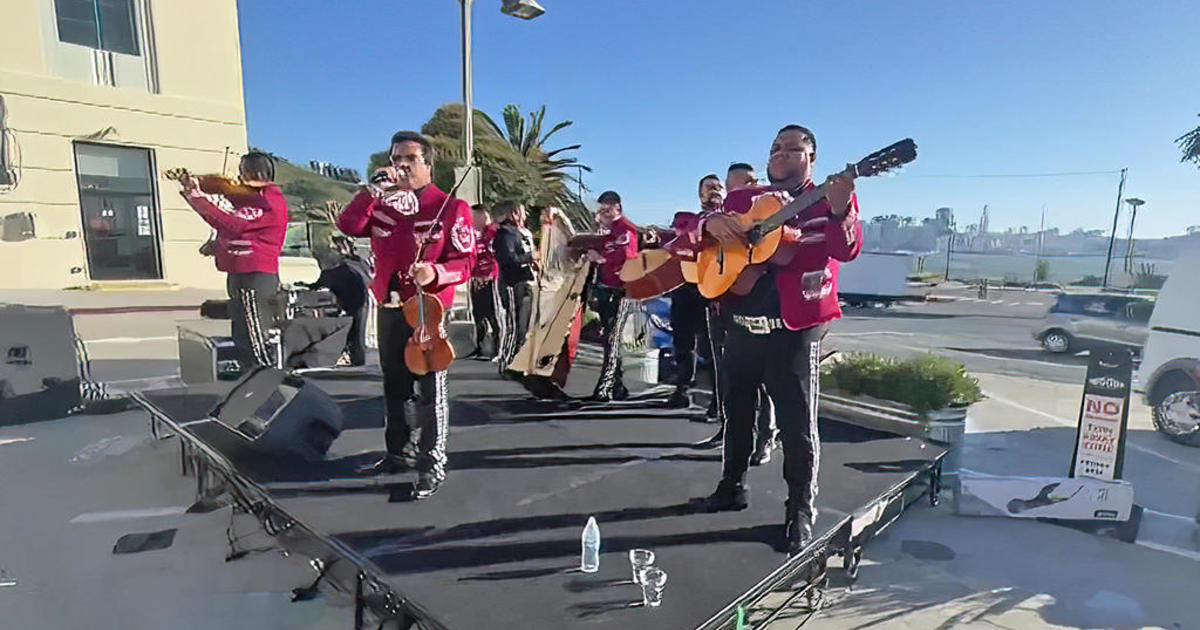
SAN FRANCISCO — The festive tunes of Mexican mariachi filled the air at Gold Bar Distillery, marking the first-ever Cinco de Mayo celebration in Treasure Island in San Francisco Bay.
Elliott Gillespie, president of Gold Bar Distillery, was excited.
“A lot of our guests asked us to do it. A bunch of them said, ‘Hey, throw a Cinco de Mayo party this year.’ And we said great idea, let’s do it!”
Gillespie sees this as an opportunity to start new traditions just months into the distillery’s business.
Dozens of people gathered to enjoy music performed by the talented Mariachi Leyendas de la Bahía.
“As soon as we start playing music, we see people dancing and singing the songs. It’s fulfilling — it’s priceless,” said mariachi musician Joxan Morales.
Among attendees was Lisette Herrera, who opted for Treasure Island over her usual celebration spot in the Mission District.
“We’re here having a great time. We have listened to all kinds of music, including rock in Spanish, Banda, and now the mariachi,” Herrera said.
While the festivities thrived in Treasure Island, other parts of the Bay Area faced challenges.
Videos emerged showing sideshows in Oakland, particularly on 42nd and International. The Oakland Police Department received multiple reports regarding illegal sideshow activity, with dozens of vehicles and spectators involved.
In contrast, the Mission District remained relatively quiet.
The celebration at Gold Bar Distillery continued until at least 7 p.m. Gillespie was bullish on Treasure Island citing its continued growth and scenic assets.
Herrera echoed that enthusiasm.
“Everything in the Bay Area belongs to us and it always has so people should come out to Treasure Island because it belongs to us as well.”
San Francisco, CA
San Francisco Giants To Call Up Top Pitching Prospect For MLB Debut
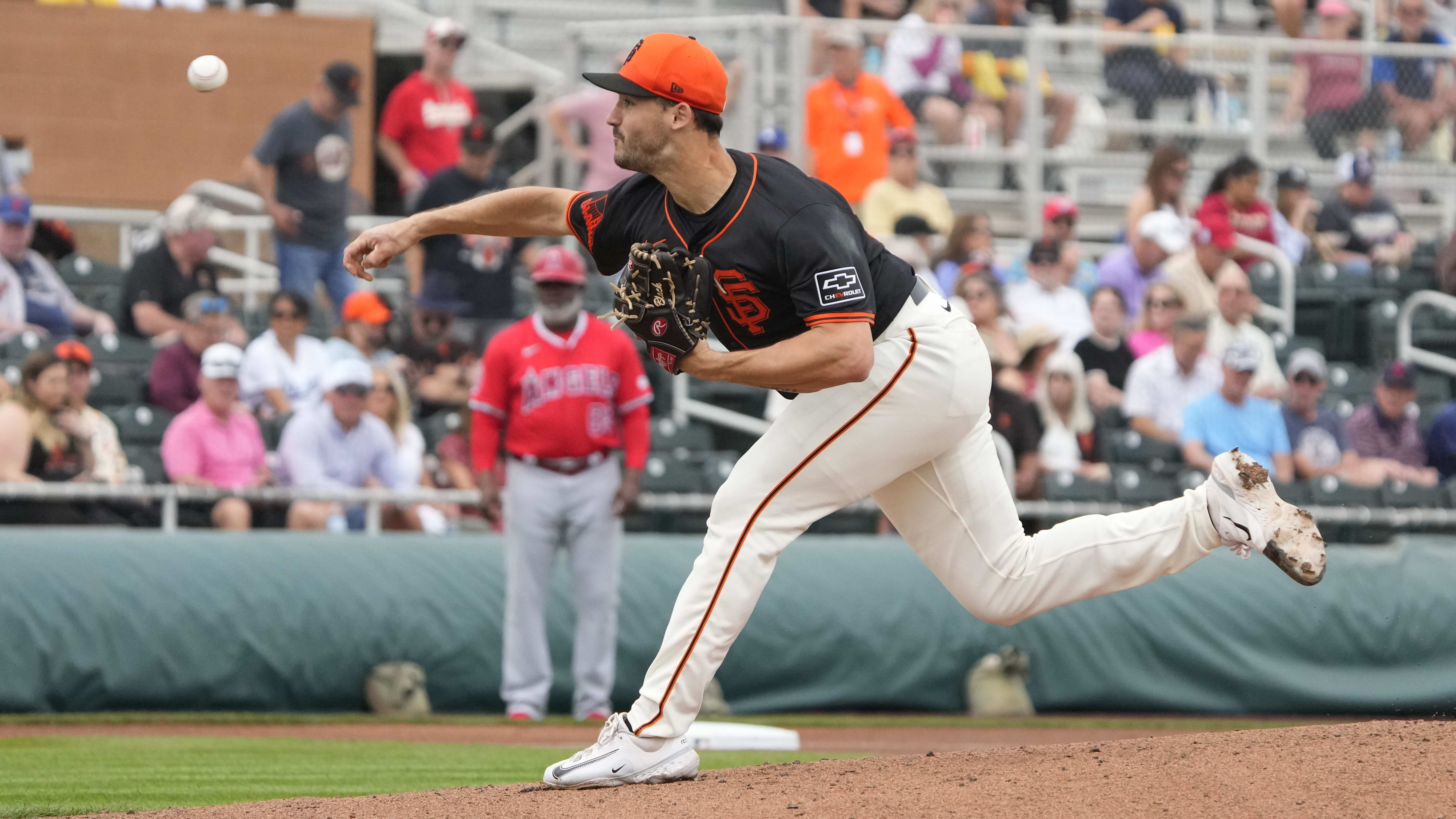
The final game of the San Francisco Giants’ wraparound four-game series with the Philadelphia Phillies will include a Major League debut.
Right-hander Mason Black joined the Giants in Philadelphia on Sunday and was added to their taxi squad. Later, multiple reports noted that Giants manager Bob Melvin said that Black would make his Major League debut on Monday.
San Francisco will make the move pre-game on Monday. It will require both a 26-man roster and 40-man roster move.
Black is the Giants’ No. 7 prospect per MLB Pipeline and will join a pair of rookies in the rotation in Kyle Harrison and Keaton Winn. He is the third-highest ranked pitcher in the organization behind left-hander Carson Whisenhunt, who is also at Sacramento, and right-hander Hayden Birdsong, who is at Double-A.
Black started the season with Triple-A Sacramento and is 2-1 with a 1.01 ERA in six starts. He’s allowed just three earned runs in 26.1 innings, with 29 strikeouts and eight walks.
The Scranton, Penn., native went to Lehigh and was the San Francisco’s third-round pick in the 2021 MLB Draft. Now 24 years old, he has a 12-14 record and a 3.22 ERA since he started his professional career.
It’s not clear if Black will remain with the team beyond Monday’s start.
San Francisco’s most notable starting pitching injury is Blake Snell, who went on the injured list last month with an adductor muscle injury. The Giants have taken a bullpen game approach to filling Snell’s spot in the rotation. But Black’s performance at Sacramento appears to have warranted at least a look at the Major League level.
Along with Snell, Robbie Ray, Alex Cobb and Tristan Beck are all on the injured list.
After they’re done in Philadelphia, the Giants head on to Colorado to continue their road trip. If Black gets a second start, it will likely come this weekend at home against the Cincinnati Reds.
San Francisco, CA
Coinbase slapped with class-action lawsuit in San Francisco
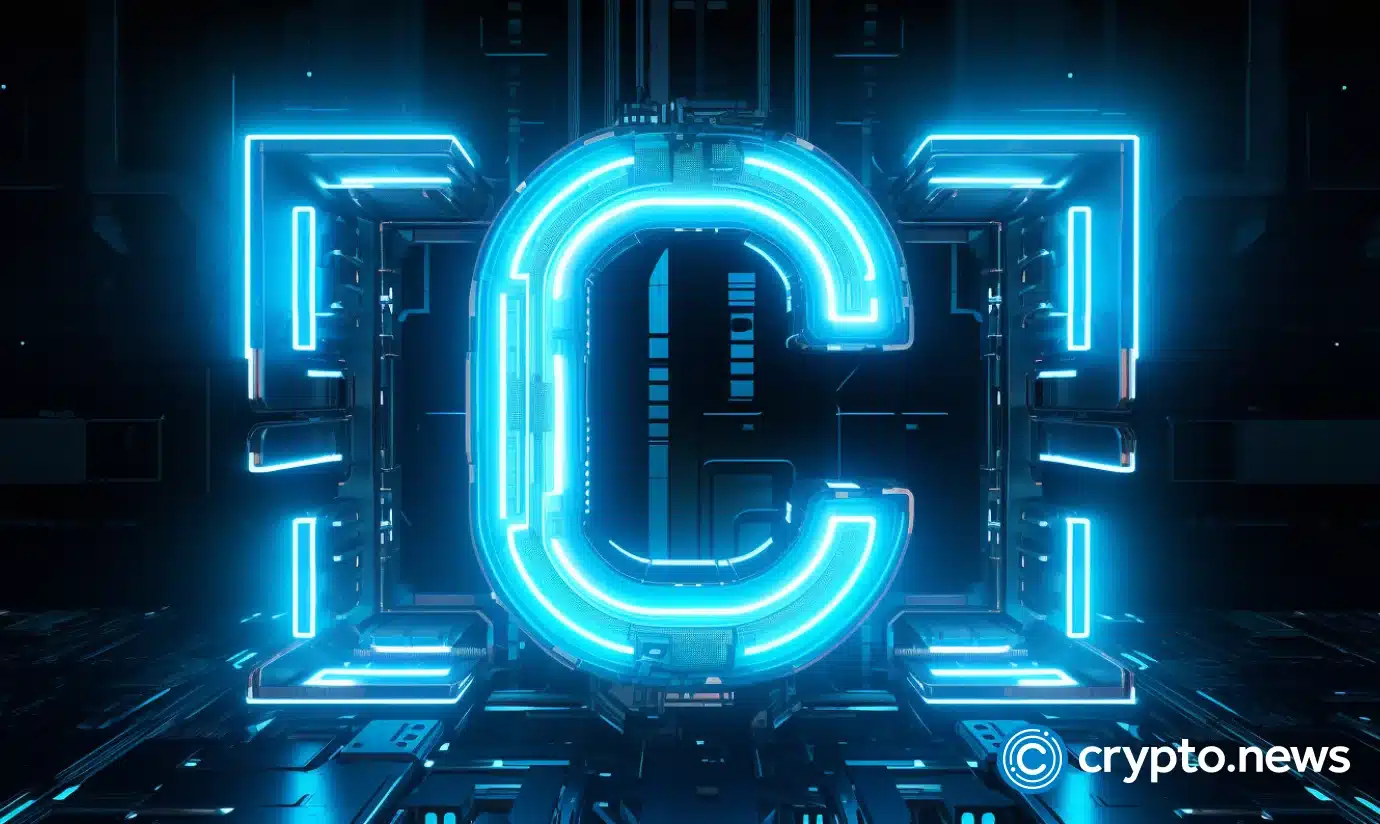
Cryptocurrency exchange Coinbase, and CEO Brian Armstrong, face a new class-action lawsuit.
A group of plaintiffs from California and Florida filed a lawsuit in the U.S. District Court for the Northern District of California, San Francisco Division.
The plaintiffs — Gerardo Aceves, Thomas Fan, Edwin Martinez, Tiffany Smoot, Edouard Cordi, and Brett Maggard — allege that Coinbase’s sales of digital assets have knowingly violated state securities laws since the company’s inception.
The lawsuit claims that several tokens sold on Coinbase, such as Solana (SOL), Polygon (MATIC), Near Protocol (NEAR), Decentraland (MANA), Algorand (ALGO), Uniswap (UNI), Tezos (XTZ), and Stellar Lumens (XLM), should be classified as securities.
According to the plaintiffs, Coinbase has admitted to being a “Securities Broker” in its user agreement, suggesting that the digital asset sales on the platform may qualify as investment contracts or other forms of securities.
The lawsuit also contends that Coinbase’s Prime brokerage functions as a securities broker.
The plaintiffs are seeking full rescission of these sales, statutory damages under state laws, and injunctive relief, with the matter proceeding to a jury trial. This lawsuit bears similarities to another class-action suit alleging consumer harm from Coinbase’s sale of securities.
Coinbase, however, has pushed back, arguing that secondary sales of crypto assets do not meet the criteria for securities transactions and questioning the applicability of securities regulations in this context.
This case is separate from Coinbase’s ongoing legal battle with the U.S. Securities and Exchange Commission (SEC), which also examines whether the tokens sold on Coinbase should be treated as securities. Recently, Coinbase filed an interlocutory appeal in response to a judge’s ruling allowing the SEC’s case to proceed.
Crypto.news reached out to Coinbase for comment but has not heard back.
Coinbase faces multiple lawsuits
In a separate development, pro-crypto lawyer John Deaton has stepped in to support Coinbase in its legal battle with the SEC by filing an amicus brief.
Deaton, known for his crypto advocacy and campaign against Massachusetts Senator Elizabeth Warren, is said to be providing his services pro bono.
His involvement coincides with Coinbase’s pushback against the SEC’s allegations and its efforts to gain clarity on regulatory matters, illustrating the ongoing tensions between cryptocurrency companies and financial regulators.
In June 2023, the SEC filed a lawsuit against Coinbase, accusing the cryptocurrency exchange of operating as an unregistered national securities exchange and broker.
The SEC claims that Coinbase traded at least 13 crypto assets that should have been registered as securities, including tokens like Solana, Cardano, and Polygon.
Separately, hundreds of Coinbase customers have sued the company over its handling of the GYEN stablecoin, which they argue was far from stable.
This lawsuit alleges that Coinbase promoted and traded the GYEN token despite being aware of its high volatility, leading to significant losses for investors.
Coinbase’s crypto staking program has also come under regulatory scrutiny. The SEC alleges that the program operates as an unregistered investment contract and security. Several U.S. states have joined the SEC’s case, accusing Coinbase of violating securities laws in connection with its staking rewards program.
Coinbase has pushed back against the regulatory crackdown. Armstrong has expressed pride in representing the crypto industry in court and has called for clearer regulations.
However, legal experts caution that the SEC’s actions could limit options for U.S. investors and increase fees as platforms turn to less-regulated markets.
These lawsuits reflect the ongoing tensions between cryptocurrency companies and financial regulators over how to classify and oversee digital assets. As the SEC intensifies its crypto enforcement, further legal battles are likely for Coinbase and other major players in the industry.
-

 Politics1 week ago
Politics1 week agoColumbia University’s policy-making senate votes for resolution calling to investigate school’s leadership
-

 News1 week ago
News1 week agoBoth sides prepare as Florida's six-week abortion ban is set to take effect Wednesday
-

 News1 week ago
News1 week agoPro-Palestinian campus protesters face looming deadlines and risk of arrest
-
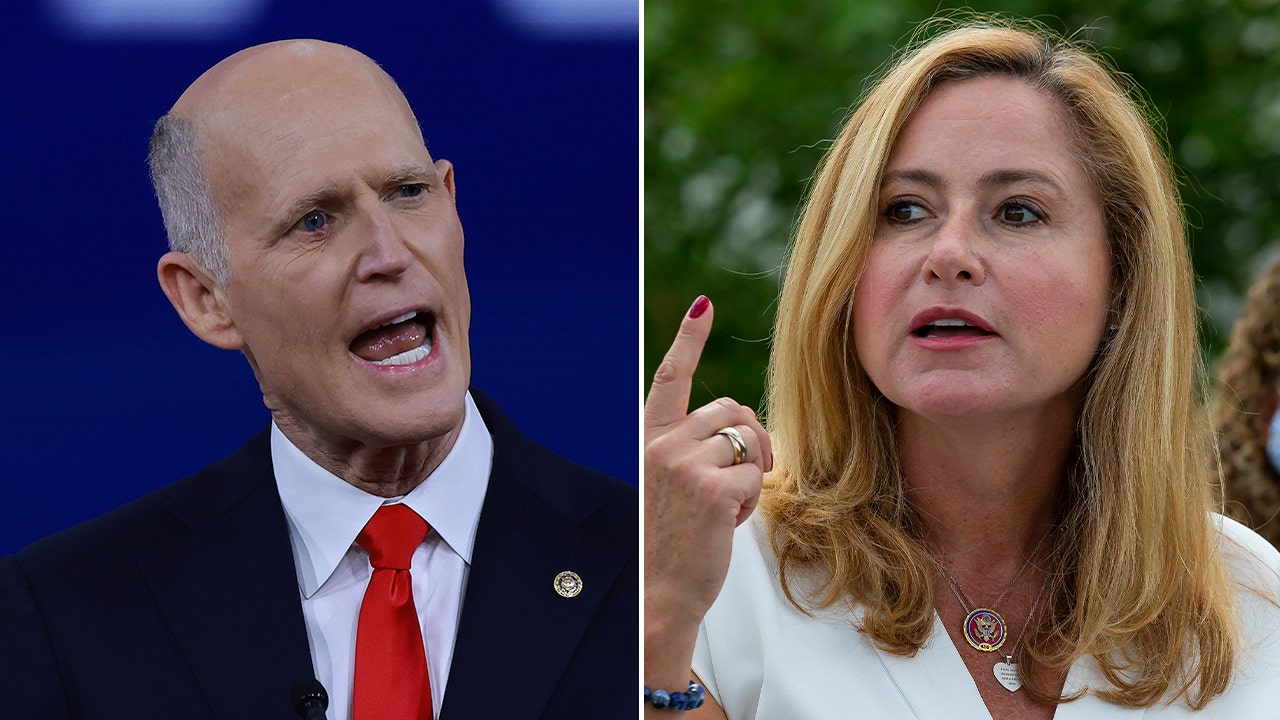
 Politics1 week ago
Politics1 week agoRepublican makes major announcement in push to grow GOP support from once-solid Dem voting bloc
-

 World1 week ago
World1 week agoBrussels, my love? MEPs check out of Strasbourg after 5 eventful years
-

 Politics1 week ago
Politics1 week agoGOP Rep. Bill Posey won't seek re-election, endorses former Florida Senate President as replacement
-

 Politics1 week ago
Politics1 week agoHouse Republicans brace for spring legislative sprint with one less GOP vote
-

 World1 week ago
World1 week agoAt least four dead in US after dozens of tornadoes rip through Oklahoma
